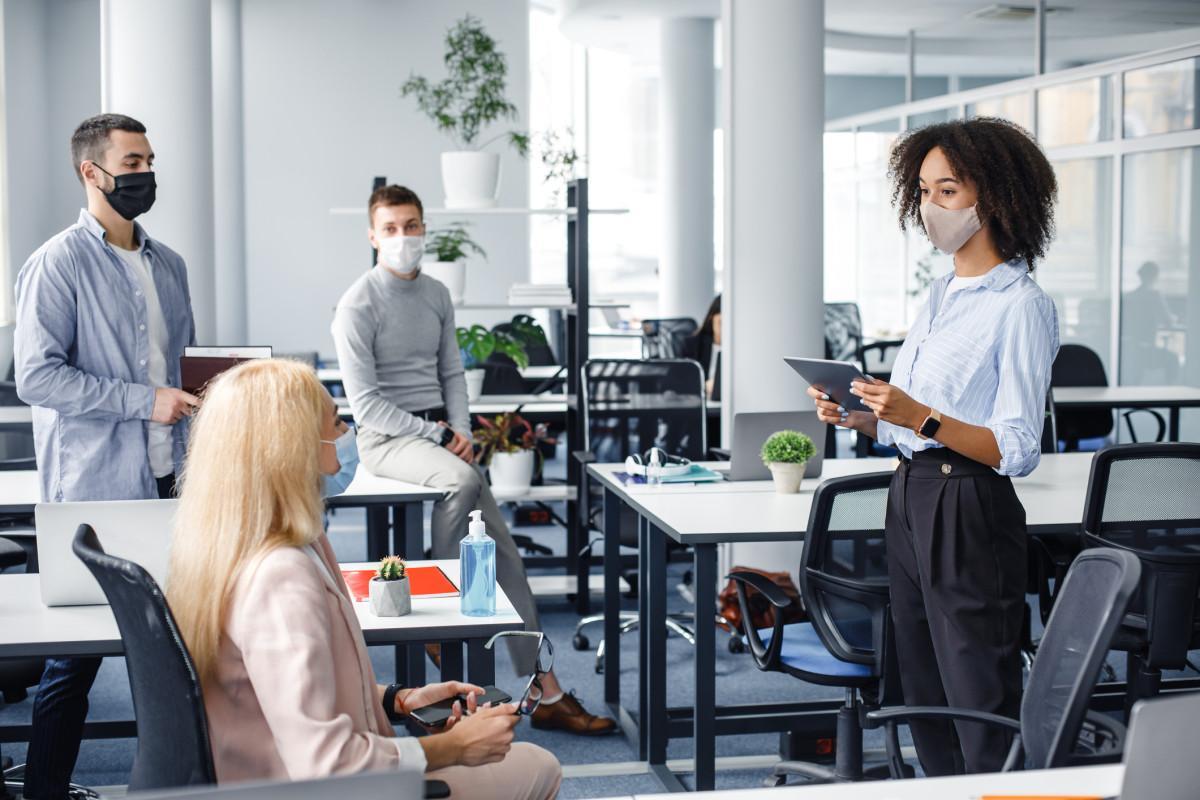
Post-Pandemic Workplace Considerations: Are You Prepared For Winter?
Even as we near the fourth year since the start of the pandemic, variants of COVID-19 continue to emerge – the newest one being BA.2.86 , a highly mutated variant detected several weeks ago and is now present in over 20 countries. Other respiratory illnesses such as the Influenza virus and Respiratory Syncytial Virus (RSV) also pose a threat to the health and well-being of employees and their families. The good news? This is the first fall and winter virus season in which vaccines are available for the three viruses responsible for most hospitalizations in the US – COVID, Flu, and RSV.
The Occupational Safety and Health Administration (OSHA ) looks to the Centers for Disease Control and Prevention (CDC ) as a source of guidance on what employers should do to keep the office safe. Workplace preparation for the winter season requires careful planning and implementation of strategic measures to minimize the risk of infection spreading, as well as respond effectively if an outbreak occurs. So how can your company help push back against the virus during the winter? Strategies to help mitigate the spread of respiratory illnesses include:
Promote Employee Vaccination : Vaccines remain highly effective in boosting immunity and preventing severe illness from the flu, COVID-19, and RSV. The CDC provides immunization recommendations for providers and the public, as well as communicates information on who should get immunizations, the benefits, and how to find recommended immunizations. Enhance Workplace Ventilation : As temperatures decrease, everyone – including employees – spend more time indoors. Therefore, indoor air quality can have a significant impact in the spread of respiratory illnesses. Improve ventilation and filtration systems in the workplace to reduce the level of airborne viruses. Implement Disinfection Protocols : Increase the frequency of cleanings and disinfecting procedures of all surfaces in the workplace, with an emphasis on the most common touch points and areas with high foot traffic. This includes office kitchens/cafeterias, conference rooms, etc. Provide Adequate Supplies : Maintain a sufficient supply of sanitizing products and personal protective equipment (PPE) such as masks or face coverings. Promote Responsible Behavior : Share friendly reminders to employees about good personal hygiene practices and the importance of staying home if they feel unwell or show any signs/symptoms. As of September 25, 2023, every U.S. household can once again place an order to receive four more free COVID-19 rapid tests delivered directly to their home. Encourage employees to order these free tests to have readily available when needed. Monitor Local Regulations : Stay on top of COVID-19 related requirements in jurisdictions where you have employees to understand your tracking, reporting, and testing obligations. For example, CAL OSHA still requires employers to provide written notifications to employees who may have been exposed to COVID-19 in the workplace.Looking Ahead
Although most state and local government mandates regarding COVID-19 have eased over the years, employers should consider the correlation between COVID-19 and employment laws when developing their approach to COVID-19 or other infectious diseases:
- Under the Americans with Disabilities Act (ADA ) and in some states with local disability laws, employers are required to work with employees who seek medical accommodation due to the effects of Long COVID . Employers may also need to assess if an employee's COVID or Long COVID diagnosis qualifies as a“serious health condition” under federal Family and Medical Leave Act (FMLA ) and/or applicable state leave laws.
In addition to established workplace policies and procedures, monitor the most up-to-date CDC guidance on best practices for those who have been exposed to the virus, are symptomatic, or have tested positive. With the absence of federal COVID requirements, employers have even more control over their workplace health and safety procedures and should continue to prioritize the promotion of a healthy and productive work environment to reduce the impact of infectious diseases on their employees.
Do you need help preparing your hybrid or in-office workplace for the winter season? Reach out to Antea Group's Hybrid and Flexible Workplace Support experts today.
About Antea Group
Antea®Group is an environment, health, safety, and sustainability consulting firm. By combining strategic thinking with technical expertise, we do more than effectively solve client challenges; we deliver sustainable results for a better future. We work in partnership with and advise many of the world's most sustainable companies to address ESG-business challenges in a way that fits their pace and unique objectives. Our consultants equip organizations to better understand threats, capture opportunities and find their position of strength. Lastly, we maintain a global perspective on ESG issues through not only our work with multinational clients, but also through our sister organizations in Europe, Asia, and Latin America and as a founding member of the Inogen Alliance. Learn more at anteagroup .

Legal Disclaimer:
MENAFN provides the
information “as is” without warranty of any kind. We do not accept
any responsibility or liability for the accuracy, content, images,
videos, licenses, completeness, legality, or reliability of the information
contained in this article. If you have any complaints or copyright
issues related to this article, kindly contact the provider above.


















Comments
No comment